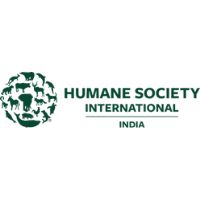
Humane Society International - India
View Brand PublisherHSI/India launches a revolutionary programme for startups innovating the way we eat, wear and make safe products
Animal cruelty is the dark underbelly of factory farming. Treated as products of industrial food machines, farm animals are raised in stressful, crowded and unsanitary conditions; and are also subjected to painful mutilations to save space and energy. But this is just the tip of the iceberg — factory farming is also a key contributor to climate change, deforestation, water pollution and water use. Researchers today also point fingers at factory farming for its contribution to the many public health crises. From higher antibiotic resistance in humans to foodborne illnesses, flu epidemics and chronic diseases are being traced to the industrial approach to raising animals for food.
Painful animal experiments are also the norm in the biomedical research sector. A syringe being forced down the throat to inject a chemical into their stomach, or being restrained and forced to breathe sickening vapours for hours are just a few examples of what the reality is for millions of mice, rabbits, dogs and other animals worldwide. The global leather industry slaughters more than a billion animals and tans their skins and hides. Banking on the perception of being “biodegradable” and “eco-friendly,” the products are by-products of animal cruel practices.
Tiny steps towards innovating the way we eat, wear and create safe products
While this is the reality, all hope is not lost. A few passionate people are working hard and trying to effect change by reinventing products that have traditionally used animals or their products. By leveraging technological advances in the fields of biotech engineering, tissue engineering, food science, cellular agriculture and AI & ML, these entrepreneurs are enabling the transition to animal-free and cruelty-free based products.
The disruption in the global alternative protein industry is indicative of this development. The alternative protein market is expected to grow at a CAGR of 9.5 percent from 2019 to reach $17.9 billion by 2025. The alternative proteins not only match the protein value from livestock and help overcome the nutrition challenge of the growing population but also have a significant transformative impact on both people and the planet.
The increased concern for the welfare of the animals used, and a growing awareness of the concept of animal rights, has brought a greater focus on the related ethical issues is also loading to growth and emergence to animal testing and usage of animal products or by-products across industries. vitro models, cell cultures, computer models, and new imaging/analysing techniques are increasingly being seen as alternatives to the use of animals for drug and chemical testing. In addition, efforts are being made to develop the naturality and multifunctionality of materials that can be used as a replacement for animals by products across industries. There is an active focus in developing natural compositions using natural active ingredients in the ‘new’ sustainable materials.
The Humane Entrepreneurship program: Where business meets humanity
To further intensify and support the effort in this direction, the Humane Society International/ India (HSI/India) — an affiliate of Humane Society International (HSI)— is hosting the Humane Entrepreneurship program. Humane Society International is the world’s largest animal protection organization with a presence in over 50 countries.
The Humane Entrepreneurship program is the first-of-its-kind incubator programme for Indian startups in the sectors of plant-based protein, next-generation materials replacing animals and technologically advanced human-relevant non-animal experimental models. The programme aims to create a more sustainable way of production and consumption by creating viable alternatives and transforming businesses to humane enterprises. Through the programme, HSI enables humane entrepreneurs to reach the next step of venture growth – convert ideas to prototypes, prototypes to pilots and pilots to scale-up.
Upto ₹8 lakhs grant + mentorship + a chance to secure funds
Five startups innovating the way we eat, what we wear and how we create safe products to create a sustainable and humane impact on the planet will be selected for the six-month mentoring programme. Each of the five startups will win a grant of up to ₹8 lakhs by HSI/India.
The startups will be assigned a mentor each, who will then work with the entrepreneur throughout the programme. In addition, startups will also be connected to experts and allied stakeholders for workshops or one-on-one sessions. The mentors include veterans like Sandhya Sriram, CEO & Co-founder, Shiok Meats; Ryan Bethencourt, CEO at , the leading plant-based pet food company in the US, and Partner at biotech VC firm, Babel Ventures; Stephanie Downs, Co-Founder & Board Chairman, Material Innovation Initiative and a serial entrepreneur with extensive work in business development and marketing; among others.
In addition, the startups will also pitch their ideas to leading investors and secure funds for their ventures during the Pitch Day on culmination of the programme.
If you are an idea stage startup, with a prototype and or business plan in place; a pilot stage startup, with a MVP and looking to pilot; or a scale stage startup, that has piloted its prototype and is now looking to scale and get into large scale production, this programme is for you.
Last date to apply for the Humane Entrepreneurship program is July 31.








